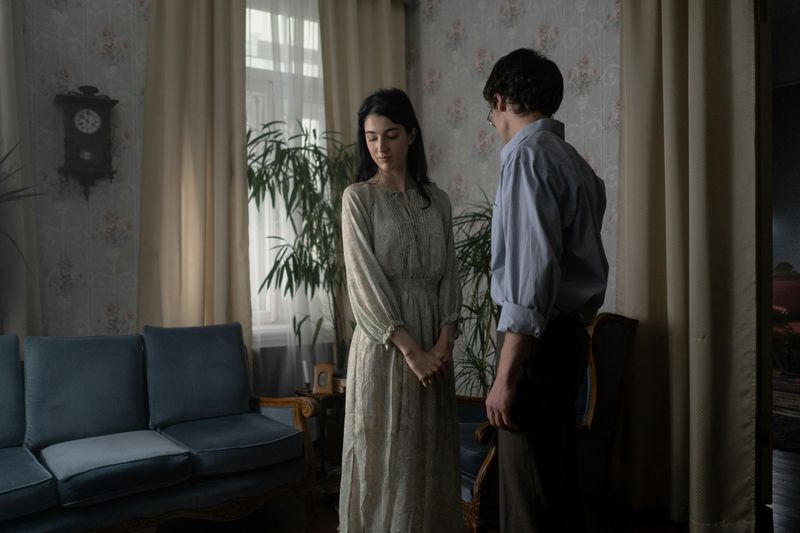17 Relationship Wounds So Deep Even Therapy Can’t Fully Mend Them

Relationships can leave lasting marks on our hearts and minds. Some hurts run so deep that even with professional help, they continue to affect how we connect with others. These profound emotional injuries often reshape our ability to trust, feel secure, and open ourselves to love again. Understanding these wounds might help us navigate relationships with more compassion – both for ourselves and others.
1. The Ghost of Betrayal

Once trust is shattered by infidelity or deep deception, the relationship becomes haunted. The betrayed partner may check phones, question late nights, or feel panic when their partner is unreachable – even years after the incident.
The mind creates new protective barriers, constantly scanning for threats. “I believe you” becomes replaced with “I want to believe you but…”
Many couples work through betrayal in therapy, yet the innocent ease of trusting completely rarely returns. The relationship carries forward with a permanent scar – functional but forever changed by the wound that altered its foundation.
2. Silent Resentment

Resentment grows like ivy in the dark corners of relationships where communication fails. Small irritations left unaddressed transform into towering grievances that silently poison every interaction.
Years of swallowed words create an emotional debt that becomes too massive to repay. The person carrying resentment might not even recognize how it colors every interaction, making genuine connection impossible.
What makes this wound particularly devastating is its invisibility. By the time it’s finally acknowledged, the emotional distance it created may be too vast to bridge, leaving partners feeling like strangers despite sharing years together.
3. The Scar of Neglect

Neglect leaves marks that time struggles to erase. When someone consistently puts everything else before you – work, hobbies, screens, or other relationships – the message received is devastatingly clear: you don’t matter enough.
This wound runs especially deep because it’s created not by what was done, but by what wasn’t done. The empty chairs at important events. The conversations that never happened. The support that never came.
Even after relationships improve, the formerly neglected person often carries a persistent feeling of unworthiness. They may struggle to believe they deserve attention and care, having adapted to expecting very little.
4. Jealousy’s Grip

Jealousy transforms love into a prison of suspicion. What begins as fleeting doubt evolves into a constant state of alertness, where innocent interactions become loaded with assumed meaning.
The jealous mind works overtime, creating connections between unrelated events and building elaborate stories of betrayal. Past hurts fuel the fire, making objective thinking nearly impossible.
The tragedy lies in how jealousy becomes self-fulfilling. The constant questioning, accusations, and monitoring eventually push partners away, creating the very abandonment the jealous person feared. Even when recognized and addressed, the exhaustion from years of proving loyalty often leaves relationships permanently weakened.
5. The Echo of Criticism

Harsh words don’t simply disappear after they’re spoken. They bounce around in the mind of the recipient, gaining volume with each echo until they drown out all other messages.
A partner who repeatedly hears “you’re so irresponsible” or “why can’t you ever get anything right?” eventually incorporates these assessments into their self-image. The criticism becomes internal, continuing long after the relationship ends.
This wound is particularly resistant to healing because it becomes woven into identity. Even surrounded by praise and positive feedback in new relationships, the criticized person often dismisses compliments while clinging to negative assessments that feel more “true” to their conditioned self-perception.
6. Unforgiven Mistakes

Some actions become permanent reference points in a relationship’s history. “Remember when you…” becomes the opening line in countless arguments, as past mistakes are weaponized again and again.
The person who made the mistake exists in a state of perpetual penance, never quite earning full redemption. Every similar misstep, no matter how minor, reopens the original wound and confirms a negative pattern in their partner’s eyes.
Many couples find themselves trapped in this cycle. The unforgiven person eventually stops trying to prove they’ve changed, while the hurt partner remains vigilant for evidence that confirms their worst fears. The relationship limps forward, permanently imbalanced by the weight of the unforgiven past.
7. The Chill of Emotional Distance

Sometimes the warmth between two people slowly fades without dramatic conflict. Conversations become functional exchanges of information rather than meaningful connections. Physical affection grows mechanical or disappears entirely.
The most painful aspect of emotional distance is its gradual nature. Like the proverbial frog in slowly heating water, couples often don’t notice until they’re existing as roommates rather than partners.
What makes this wound so difficult to heal is that no specific behavior needs changing – it’s the absence that must be addressed. Couples may recognize the problem and even successfully create moments of connection, but rebuilding the automatic emotional attunement that once existed often remains elusive.
8. The Weight of Expectations

Being loved conditionally crushes the spirit. When affection depends on meeting specific standards – career success, physical appearance, social performance – the relationship becomes an ongoing evaluation rather than a safe haven.
The person carrying these expectations may not even realize they’ve created a partnership where love feels earned rather than freely given. Meanwhile, their partner develops a persistent anxiety, always wondering if they measure up.
Even after addressing this dynamic in therapy, the formerly pressured partner often struggles to believe they’re truly accepted as they are. The fear of disappointing remains, creating a hesitancy to be authentic and vulnerable – the very qualities needed for genuine intimacy.
9. The Strain of Unresolved Conflict

Some couples circle the same arguments for decades without resolution. Money, in-laws, parenting approaches – the topic becomes a conversational third rail, instantly electrifying the atmosphere whenever mentioned.
Avoidance becomes the coping strategy of choice. Partners develop elaborate systems to work around the issue rather than through it, creating increasingly complex detours in their relationship.
The wound deepens with each evasion. The relationship develops no-go zones where authentic communication is impossible, limiting the potential for true intimacy. Even with therapeutic intervention, some conflicts remain so entrenched in opposing values or needs that resolution remains perpetually out of reach.
10. The Ache of Unfulfilled Promises

Broken promises leave lasting damage far beyond the disappointment of the moment. Each unfulfilled commitment chips away at the foundation of reliability that relationships require to flourish.
“We’ll start saving next month” or “I’ll be more present with the kids” – when these promises repeatedly go unkept, they transform from hopeful statements to painful reminders of the gap between words and actions. The promise-breaker may not recognize how each broken commitment compounds the damage.
Trust, once fractured by pattern of empty words, becomes remarkably difficult to rebuild. Even when behavior improves, the injured partner often waits for the other shoe to drop, having learned that hope leads to hurt.
11. The Burden of Unspoken Expectations

“You should know what I need without me having to say it.” This unvoiced demand creates a particularly painful relationship wound. One partner feels consistently disappointed while the other feels perpetually inadequate, never quite understanding the rules of a game they didn’t know they were playing.
Mind-reading expectations often stem from early experiences where needs were anticipated by caregivers. The expectation carries forward, creating a relationship where clear communication is replaced by hints, sighs, and growing frustration.
Even when recognized, this pattern leaves lasting damage. The person expected to mind-read develops anxiety about missing cues, while the expectation-holder struggles to trust that directly stating needs won’t diminish the response’s value.
12. The Sting of Unreciprocated Efforts

Relationship imbalance creates a unique kind of heartache. One person consistently plans the dates, initiates intimacy, remembers the birthdays, or manages the emotional labor while the other passively receives without matching the investment.
Initially, the giver may not mind the imbalance. Over time, however, the one-sided nature of the relationship creates a growing sense of invisibility and unimportance. Small gestures that go unnoticed or unreciprocated accumulate into profound hurt.
This wound persists because the pattern becomes entrenched in the relationship’s operating system. Even with awareness, couples often struggle to recalibrate the give-and-take dynamic after years of established roles, leaving the formerly over-functioning partner perpetually wary of falling back into old patterns.
13. The Heartache of Mismatched Values

Some relationship wounds emerge not from what anyone did wrong, but from fundamental incompatibility in what matters most. Couples may discover years into their relationship that they hold irreconcilable differences in core values about family, money, religion, or purpose.
The pain comes from realizing that no amount of love or compromise can bridge certain gaps. One person may need to diminish important parts of themselves to maintain the relationship, creating an impossible choice between authenticity and connection.
Even with skilled therapy, value misalignments often remain a permanent source of tension. Partners must either accept significant compromise on matters of deep importance or separate – both options involving profound loss and adjustment to a different future than imagined.
14. The Void of Emotional Unavailability

Loving someone who cannot or will not connect emotionally creates a unique form of loneliness. The physically present but emotionally absent partner leaves the other reaching for connection that never fully materializes.
Emotional unavailability often has deep roots in childhood experiences or past relationship traumas. The unavailable person has built protective walls so thick they themselves may not know how to dismantle them, while their partner exhausts themselves trying to break through.
This wound persists because emotional availability isn’t simply a choice but a capacity developed through secure attachment experiences. Even with understanding and effort, some people remain limited in their ability to provide the emotional resonance and vulnerability that intimate relationships require to truly flourish.
15. The Pain of Abandonment

Being left – physically or emotionally – creates one of the deepest relationship wounds. The abandoned person is left not just without their partner but often questioning their fundamental worth and lovability.
The brain processes abandonment as a primal threat, triggering survival-level fear responses. This explains why abandoned partners may experience physical symptoms alongside emotional distress – the body literally responds as if facing a life-threatening situation.
What makes abandonment particularly difficult to heal is how it rewires relationship expectations. The fear of being left again creates hypervigilance for signs of withdrawal, often creating self-fulfilling prophecies as new partners feel suffocated by constant reassurance-seeking or pushed away by premature accusations of leaving.
16. Emotional Invalidation

“You’re overreacting.” “That’s not worth being upset about.” “Why are you always so sensitive?” These dismissive responses create wounds that deepen with each occurrence.
Emotional invalidation teaches someone that their internal experience is wrong or unimportant. Over time, they begin to question their own perceptions and feelings, creating a profound disconnection from their emotional truth.
The lasting damage comes from how invalidation erodes self-trust. Even after leaving invalidating relationships, many people struggle to honor their emotional responses or advocate for their needs. They’ve internalized the message that their feelings are flawed, creating a hesitancy to be emotionally authentic that can persist across a lifetime of relationships.
17. Emotional Dysregulation

Walking on eggshells becomes a way of life with an emotionally volatile partner. Never knowing what might trigger an explosion creates a constant state of vigilance that exhausts the nervous system and erodes security in the relationship.
The unpredictable nature of dysregulated emotions makes this wound particularly difficult to heal. Just when trust begins rebuilding after a calm period, another outburst reactivates the trauma response, reinforcing the belief that safety is temporary.
Children raised with dysregulated caregivers often carry this wound into adulthood, struggling to believe in emotional stability even with consistently regulated partners. Their nervous systems remain primed for chaos, making it difficult to fully relax into relationships even when objectively safe.

Comments
Loading…